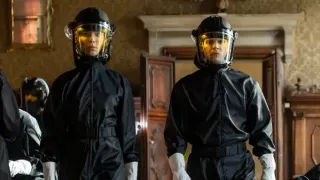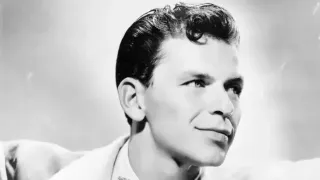November 9, 2015
Republican Field Guide: It's Down to 8 for No. 4 Debate
Connie Cass READ TIME: 7 MIN.
Now there are eight. The latest Republican presidential debate brings two fewer candidates to the main stage. But that still leaves a gaggle of competing personalities to keep straight Tuesday night in Milwaukee.
A field guide to the seven men and one woman in the Fox Business Network debate:
___
DONALD TRUMP
Key features: Billionaire real estate developer, author and reality TV star with the catchphrase, "You're fired!"
A quick sketch:
-Son of wealthy builder in the New York City borough of Queens.
-Prospered in family business while studying economics at the University of Pennsylvania.
-"The Donald" gained fame as splashy Manhattan developer of hotels, skyscrapers and golf courses around the world.
-Considered Reform Party presidential run in 2000; flirted with GOP bid in 2012.
-Starred in reality TV shows "The Apprentice" and "Celebrity Apprentice," juiced "Saturday Night Live" ratings as host this month.
Also of note:
The front-runner is rich enough to pay for his own campaign - and brags about that - but 74,000 donors showered him with nearly $4 million in small-dollar contributions, July through September.
Might Trump be for you?
Perhaps yes, if you want a president who says what he thinks even if people take offense.
Perhaps no, if you're offended by his remarks suggesting Mexicans who cross the border illegally are rapists and criminals.
Some other distinguishing issues:
-Build a wall along the Mexican border to stop illegal immigration.
-Deport all immigrants in the U.S. illegally; allow what he calls 'the good ones' to return legally.
-Renegotiate international trade deals to bring jobs back to the U.S.
In a nutshell:
Political outsider. Celebrity. Billionaire.
___
BEN CARSON
Key features: Famed pediatric neurosurgeon whose inspiring life story became a TV movie.
A quick sketch:
-Raised in Detroit by a divorced, impoverished mother.
-Director of pediatric neurosurgery at Johns Hopkins in Baltimore for 29 years, now retired.
-First surgeon to successfully separate twins joined at the head.
-Awarded Presidential Medal of Freedom.
-Enhanced his conservative cred with politically charged remarks at 2013 National Prayer Breakfast.
Also of note:
In his autobiography, "Gifted Hands," Carson describes being gripped by violent, pathological anger as a teen and how he turned to God's help to overcome his temper. Reporters have raised questions about the violent incidents and other elements of his life story, putting the soft-spoken candidate in the unusual position of insisting that as an enraged youth he really did try to attack his mother with a hammer and attempt to stab a young relative.
Might Carson be for you?
Perhaps yes, if you want a doctor to fix the nation's health care policy.
Perhaps no, if you're looking for someone with political experience and seasoned rhetoric. Carson once compared President Barack Obama's health care law to slavery.
Some other distinguishing issues:
-Impose the same flat income tax on everyone.
-Ban abortion even in cases of rape or incest.
-Add a balanced budget amendment to the Constitution.
In a nutshell:
Christian conservative. Doctor. Only African-American contender.
___
MARCO RUBIO
Key features: Florida senator who teamed with Democrats on an immigration overhaul that would have given immigrants in the U.S. illegally a way to become citizens; now says fixing border security comes first.
A quick sketch:
-His Cuban immigrant parents worked as a bartender and a maid.
-Won a college football scholarship; University of Miami law degree.
-Elected to Florida House in 2000, rose to speaker.
-Beat a popular governor to win his U.S. Senate seat.
-Speaks fluent Spanish, as does his Colombian-American wife.
Also of note:
Rubio got famous on the Internet in 2013 when he paused in his televised response to the State of the Union address to make an awkward reach for bottled water while staring into the camera, like a Poland Spring-swilling deer in the headlights.
Might Rubio be for you?
Perhaps yes, if you think it's time for a younger generation (Generation X in this case) to lead.
Perhaps no, if you believe human actions cause global warming.
Some other distinguishing issues:
-Reverse President Barack Obama's diplomatic outreach to Cuba.
-Stop taxing investment income, give parents a bigger tax break.
-Freeze federal spending except on the military.
In a nutshell:
Tea party roots. Hispanic. Youthful.
___
TED CRUZ
Key features: He's a Republican senator who pushed a government shutdown to fight "Obamacare."
A quick sketch:
-Father is a Cuban immigrant who became a pastor.
-Winning debater at Princeton and Harvard Law.
-Argued nine cases before the Supreme Court.
-Won Senate seat in 2012 upset, his first elected office.
-A Texan partial to ostrich-leather boots.
Also of note:
Cruz was born in Canada. His father was born in Cuba. But his mother was born in Nebraska, giving him U.S. citizenship. He's formally renounced his dual Canadian citizenship. Cruz is the first Hispanic senator from Texas, where many residents are native Spanish speakers. He's not fluent in the language, however, and nixed a proposal for a debate in Spanish in his 2012 Senate campaign.
Might Cruz be for you?
Perhaps yes, if you want to stop President Barack Obama's health care law at all costs.
Perhaps no, if you're looking for bipartisan compromise on immigration.
Some other distinguishing issues:
-Amend the Constitution so that voters could oust Supreme Court justices.
-Amend the Constitution to allow states to ban gay marriage.
-Abolish the IRS, switch to a flat tax.
In a nutshell:
Tea party. Christian conservative. Hispanic.
___
JEB BUSH
Key features: Son of a president, little brother of a president, and he's a former Florida governor.
A quick sketch:
-Born in Texas as John Ellis Bush, shortened to the nickname Jeb.
-Met his future wife, Columba, a native of Mexico, during a high school exchange program.
-Worked for father George H.W. Bush's 1980 and 1988 presidential campaigns.
-Was governor in 2000 when Florida recount gave his brother George W. Bush the presidency.
-Made a name among religious conservatives by opposing removal of life support in the Terri Schiavo case.
Also of note:
Bush would be the first brother of a president ever elected. If he wins, three of the five most recent White House residents would be named Bush. He says he's not his father or his brother, however: "I am my own man, and my views are shaped by my own thinking and experience."
Might Bush be for you?
Perhaps yes, if you want an immigration overhaul that gives people in the U.S. illegally a path to legal status.
Perhaps no, if you think post-Sept. 11 surveillance programs violated civil liberties.
Some other distinguishing issues:
-Wants states to adopt higher education standards; supports Common Core.
-Assert U.S. military might more robustly in Iraq and to counter Russian moves in Eastern Europe.
-Block tax increases, although he won't sign a no-tax-increase pledge.
In a nutshell:
Bush dynasty. Speaks Spanish fluently. Early establishment favorite.
__
CARLY FIORINA
Key features: She's a businesswoman - a former CEO of Hewlett-Packard - who's run for Senate but never held public office.
A quick sketch:
-Daughter of a law professor-turned-federal appeals judge and an abstract painter.
-Trailblazing female executive at AT&T, Lucent and Hewlett-Packard.
-In over five years of running HP: led major merger, laid off 30,000 workers, ousted by board.
-Made a name in politics as high-profile adviser to John McCain's 2008 presidential campaign.
-Ran for U.S. Senate seat from California, and lost, while being treated for breast cancer in 2010.
Also of note:
Her first two debate performances gave a big boost to Fiorina's campaign. In the second debate, however, she described seeing a graphic scene in secretly recorded footage of Planned Parenthood that isn't actually in those anti-abortion videos, and refuses to acknowledge the mistake.
Might Fiorina be for you?
Perhaps yes, if you agree with her that a woman could best take on Democratic front-runner Hillary Rodham Clinton.
Perhaps no, if you want a president with experience serving in government.
Some other distinguishing issues:
-Impose "zero-based budgeting" that evaluates each federal program's spending annually.
-Shrink the government workforce and base federal workers' pay on performance, not seniority.
-Use innovation, not regulation, to address global warming.
In a nutshell:
Fiscal conservative. Political newcomer. GOP's only female contender.
___
JOHN KASICH
Key features: Former congressman now in his second term as Ohio governor.
A quick sketch:
-Son of a Pennsylvania mailman.
-Graduated from Ohio State and became, at 26, the youngest person elected to Ohio's Senate.
-Found his Anglican faith in his 30s after his parents were killed by a drunk driver.
-Served 18 years in Congress, working with lawmakers of both parties to cut spending, balance budget.
-Ran for president in 2000 but dropped out early; elected governor in 2010.
Also of note:
Kasich opposes President Barack Obama's health care overhaul, yet he accepted federal money under the law to expand Ohio's Medicaid program. That angered many of his fellow Republicans. Kasich says "real flesh and blood, and real improvements in people's lives" are more important than ideology.
Might Kasich be for you?
-Perhaps yes, if you want to protect the social safety net for the poor.
-Perhaps no, if you oppose sending U.S. ground troops to fight in Syria.
Some other distinguishing issues:
-Allow some immigrants who have been in the U.S. illegally for years to stay if they pay a fine.
-Address the climate change problem without doing economic damage.
-Use the Common Core standards to raise education standards.
In a nutshell:
Fiscal conservative. Sitting governor. Second time around.
___
RAND PAUL:
Key features: He's NOT Ron Paul. That's his father, the former congressman who ran for president three times, once as a Libertarian.
A quick sketch:
-Helped in his father's campaigns from age 11.
-Raised in Texas, settled in his wife's home state of Kentucky.
-Ophthalmologist known for free eye clinics for the poor.
-Won Senate seat in 2010 tea party wave, his first elected office.
-Took over Senate floor for hours to question U.S. drone policy and oppose collection of Americans' phone records
Also of note:
Rumors aside, he wasn't named for "Atlas Shrugged" author Ayn Rand. His given name is Randal, and his wife dubbed him "Rand." But he is a fan of Ayn Rand's books.
Might Paul be for you?
Perhaps yes, if you're upset about the National Security Agency snooping into citizens' private communications.
Perhaps no, if you want to see more aggressive use of U.S. military power in the world.
Some other distinguishing issues:
-Give Congress more power over the Federal Reserve.
-End the right to abortion, protecting life from conception.
-Reduce penalties for many drug crimes, let nonviolent felons vote.
In a nutshell:
Libertarian-ish. Tea party. Young voter strategy.






